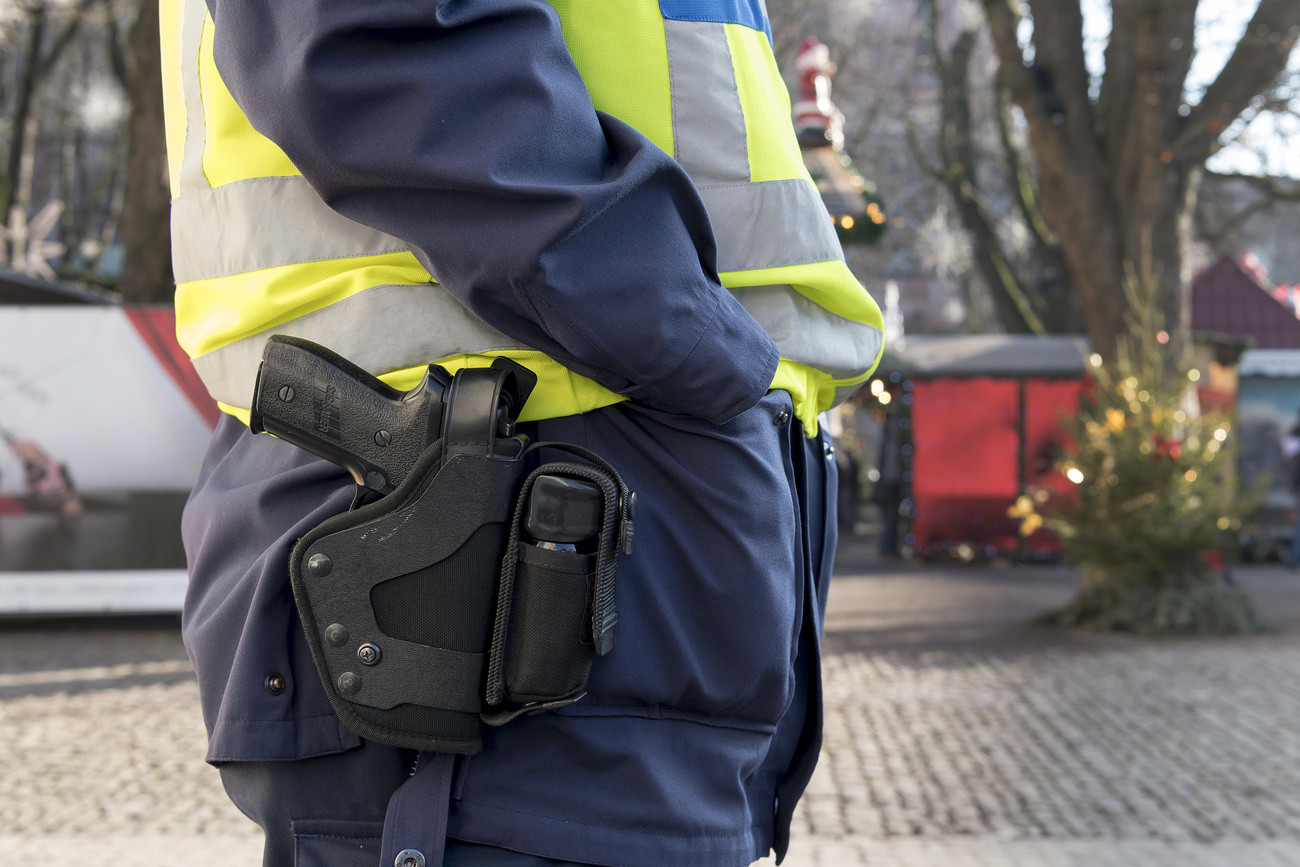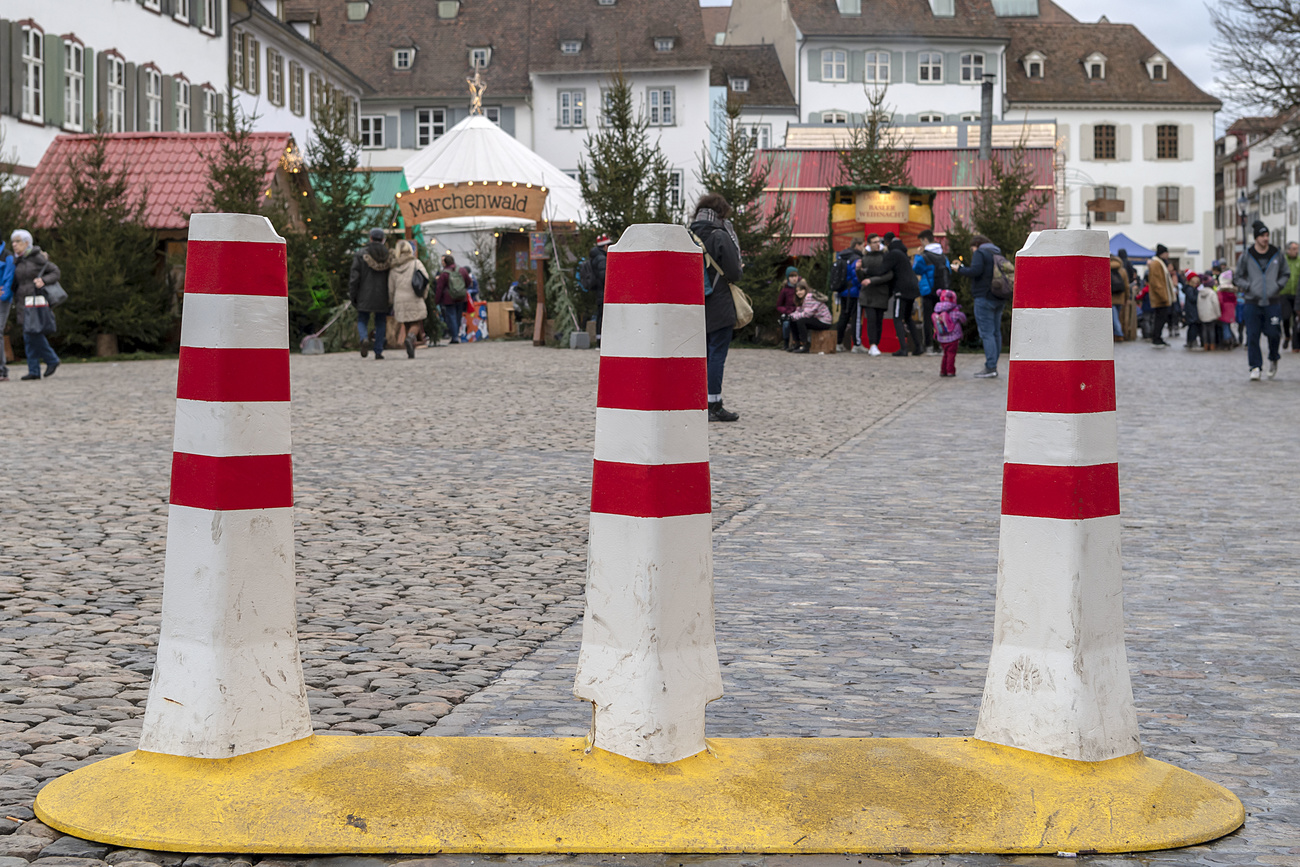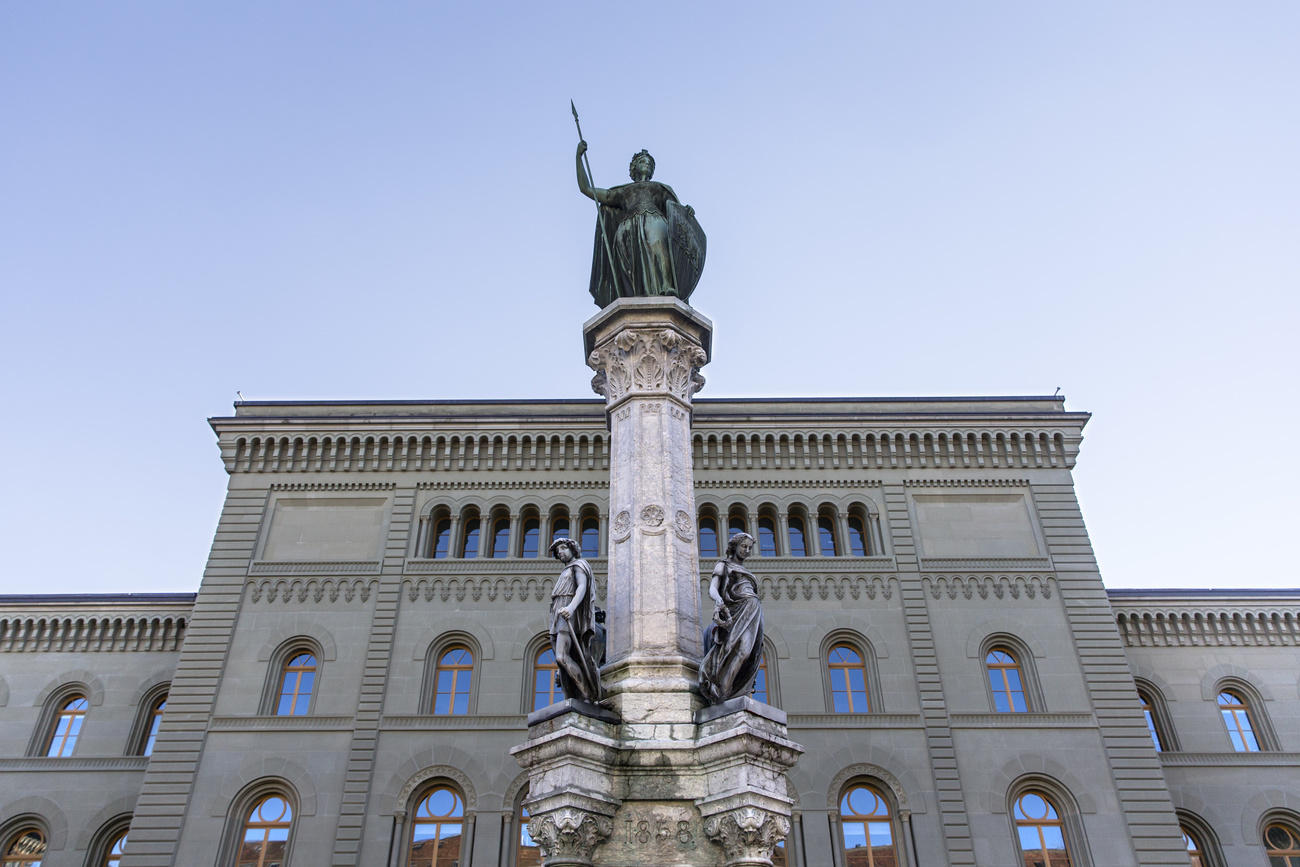UN experts criticise Switzerland over anti-terrorism law

The Swiss government’s draft anti-terrorism law, which is being discussed in parliament, violates international human rights standards, and would set a dangerous precedent for the suppression of political dissent worldwide, UN human rights experts have warned.
On Friday, Swiss United Nations special rapporteur on torture, Nils Melzer, and four of his colleagues issued a statementExternal link expressing their regret at the Swiss government’s refusal to change parts of the draft law, which they consider controversial.
“None of our recommendations have been implemented”, they declared, referring to a 16-page formal letter sent to the Swiss governmentExternal link at the end of May.
“No satisfactory response has been given to our primary concerns about the incompatibility of the bill with human rights and international best practices in counter-terrorism,” they went on.
The Swiss government has proposed new legislation aimed at preventing extremist violence and forcing people deemed a threat, including children aged 12 upwards, to be registered with the authorities. House arrest could also be applied to suspects as a last resort in some cases. The idea is to target people who have not yet committed a crime but who are considered to be a risk.
New definition
The experts are concerned that the draft law’s new definition of “terrorist activity” no longer requires the prospect of any crime at all. They fear it may target “legitimate activities of journalists, civil society and political activists”.
According to existing international standards, terrorism always involves the intimidation or coercion of populations or governments through the threat or perpetration of violence causing death, serious injury or the taking of hostages, the UN experts stated.
Broadening the definition of terrorism “goes far beyond current Swiss domestic law and violates international standards”, they said.
“This excessively expansive definition sets a dangerous precedent and risks serving as a model for authoritarian governments seeking to suppress political dissent including through torture and other cruel, inhuman or degrading treatment or punishment.”
They also warned against sections of the bill that would give the federal police extensive powers to designate “potential terrorists” and to decide on preventive measures against them without meaningful judicial oversight.
In mid May the Council of Europe’s Commissioner for Human Rights made her concerns about the draft law clear in a separate letterExternal link. In it, she invited “parliamentarians to review the draft law on police counter-terrorism measures in order to ensure that all human rights standards are respected”.
Further criticism has come from Amnesty International which earlier this year condemned the law as “draconianExternal link”.

More
Parliament takes next step for anti-terror measures

In compliance with the JTI standards
More: SWI swissinfo.ch certified by the Journalism Trust Initiative


You can find an overview of ongoing debates with our journalists here. Please join us!
If you want to start a conversation about a topic raised in this article or want to report factual errors, email us at english@swissinfo.ch.